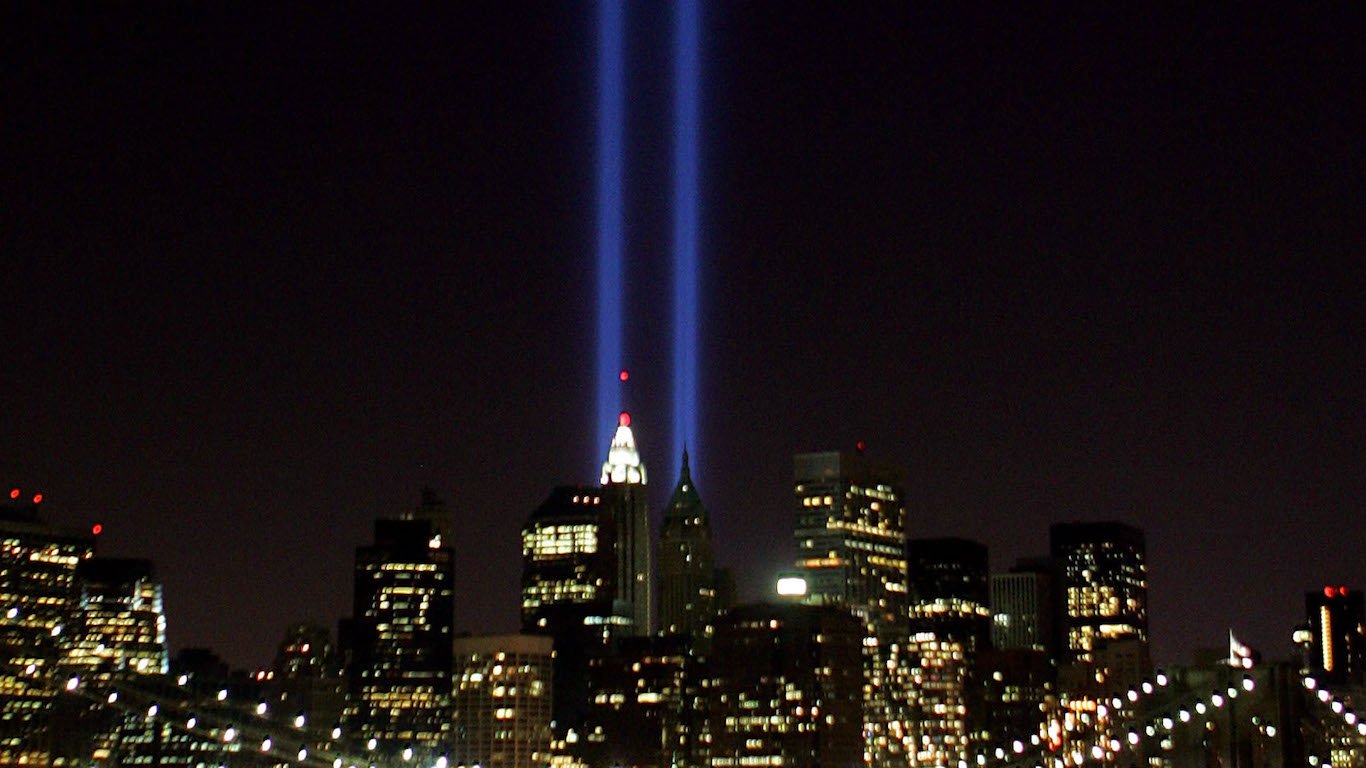

It has been 17 years since 19 terrorists hijacked four commercial airliners in U.S. airspace, turning them into missiles that destroyed New York City’s World Trade Center towers and damaged the Pentagon. The fourth airplane crashed into a Pennsylvania field. The attacks killed 2,977 people.
The Sept. 11, 2001, terrorist attacks are often described as an event that changed the country forever. It is a date that accompanies Dec. 7, 1941, as among the most infamous in American history.
Americans often speak of the terrorist attacks in terms of “before” and “after.” Before 9/11, public buildings had fewer security measures, it was more difficult for law enforcement to get wiretapping warrants, and airport security measures were much less strict. After 9/11, the immigration system was radically overhauled, banks were compelled to take more responsibility to fight money laundering, and the United States entered into a military conflict in Afghanistan that has become the longest in the nation’s history.
The attacks spurred temporary changes, too, such as a surge in American flag sales, and an increase in military enlistment as the United States went to war in Afghanistan and later in Iraq. The attacks prompted other seemingly permanent changes. Here are the 15 ways America has changed since that fateful day.
24/7 Wall St. examined media reports and government documents in recent years to determine the different ways the United States changed because of the 9/11 attacks. We discarded temporary changes and focused on the impacts that are still being felt in this country.
Click here to see the 15 ways America has changed after 9/11.
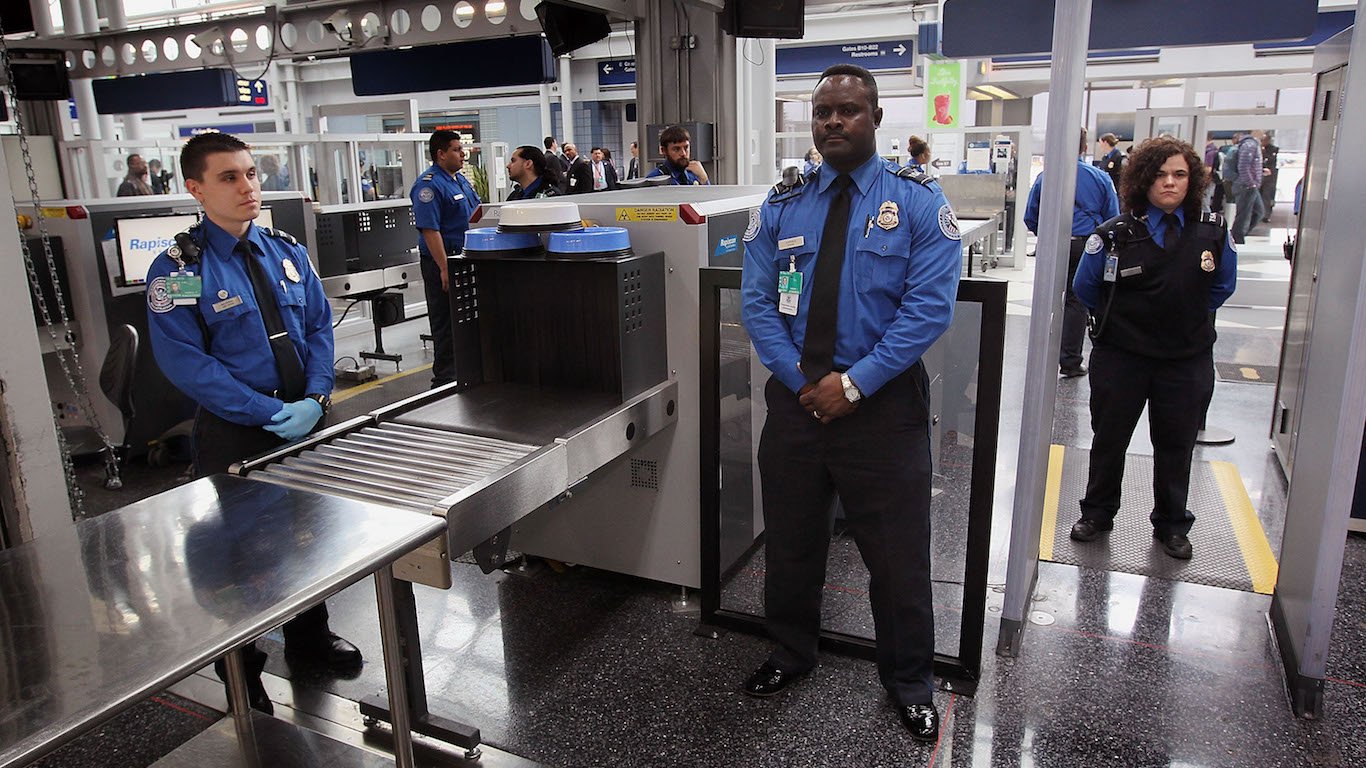
1. Airport security tightened
Following a string of airplane hijackings in American airspace — more than 130 between 1968 and 1972 — airports had gradually tightened security long before 9/11. By 1973, airlines had instituted universal passenger screenings, including X-ray machines and metal detectors, but security was handled by private contractors under the watch of the Federal Aviation Administration. After 9/11, the federal government created the Transportation Security Administration, federalizing airport security. Since then, the federal government has spent more than $100 billion on airline safety. Security checkpoints became so large that some regional airports struggled to make room for them.
Since 9/11 there have been several other close calls that added even more security measures. Because of attempts by “shoe bomber” Richard Reid to blow up a plane in flight in December 2001 and by “underwear bomber” Umar Farouk Abdulmutallab to take down a U.S.-bound aircraft in 2009 passengers now must remove their shoes when they pass through security and forego liquids over a certain amount.
[in-text-ad]
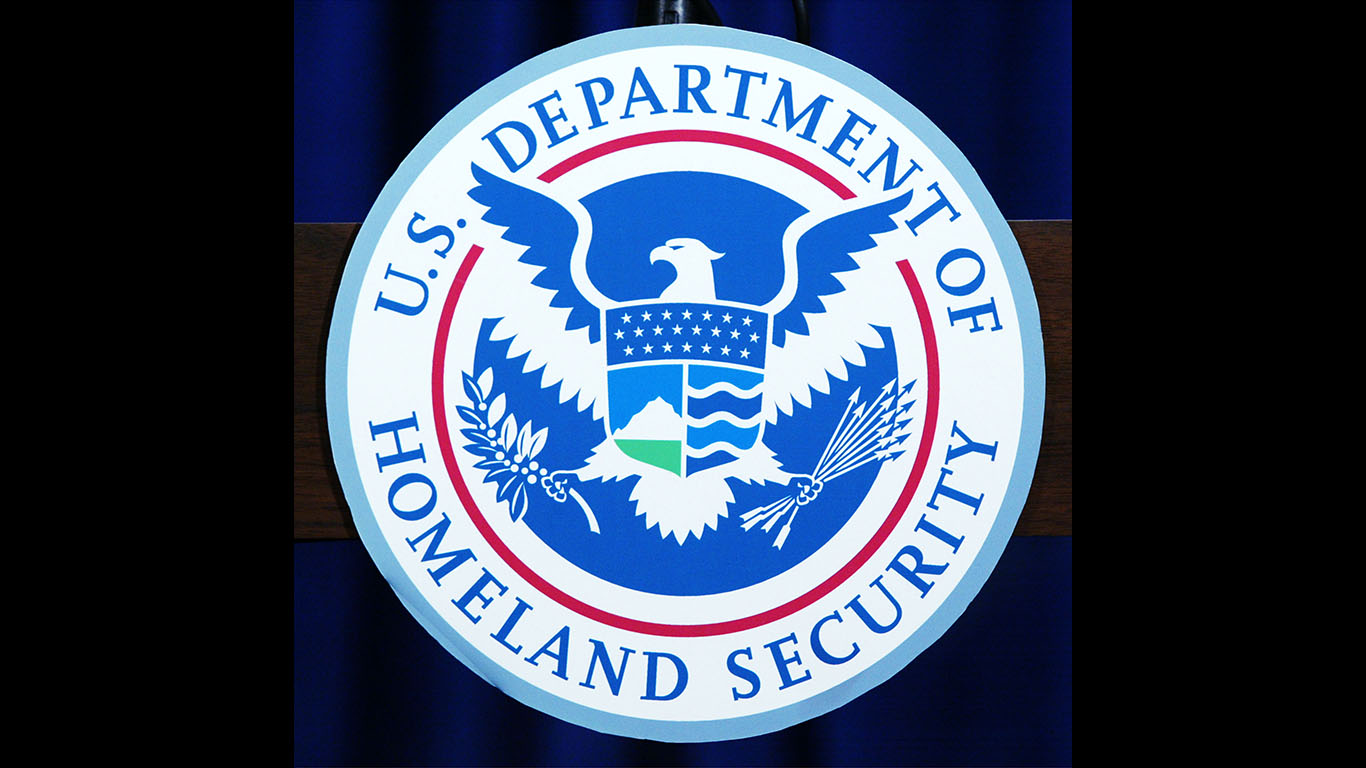
2. National security was bolstered
The first attack on American soil since the Japanese assault on Pearl Harbor in 1941 led to one of the biggest reorganizations of the U.S. federal government in decades. Namely, legislators passed the USA PATRIOT Act less than two months after the 9/11 attacks and the Homeland Security Act in 2002 — both with broad bipartisan support. The laws, which aim to enhance national security and prevent future terrorist attacks, greatly expanded federal authority.
The measures included the establishment of the Department of Homeland Security, which took control of U.S. immigration services that had previously fallen under the Department of Justice. The laws also significantly extended the surveillance and investigative powers of law enforcement agencies and supplied military-style hardware to local police departments. A Washington Post investigation in 2010 found that the federal government had built 17 million square feet of space for top secret intelligence work in the decade following the attacks.
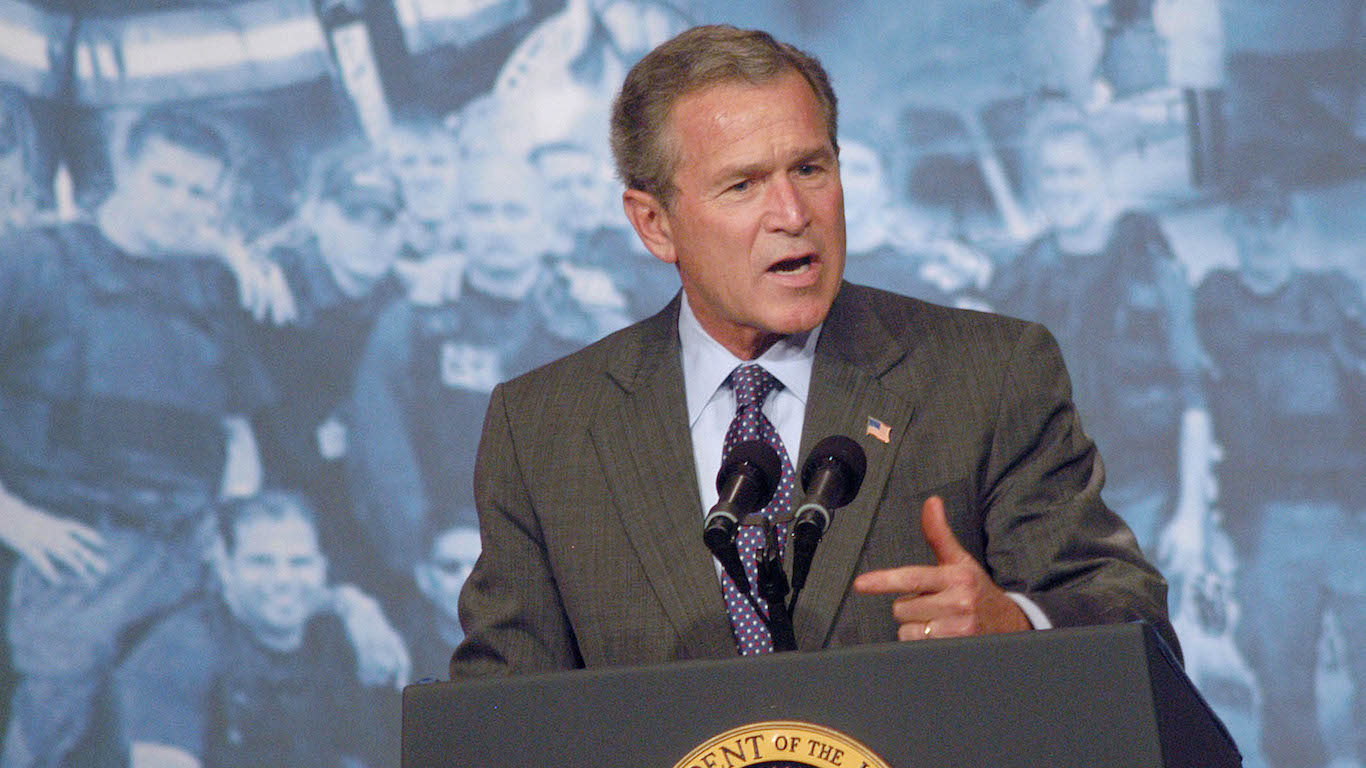
3. Government surveillance escalated
Americans have long grappled with the right to privacy, namely because the Constitution does not explicitly state that people have a right to be left alone. The Bill of Rights offers some guidance, including privacy of beliefs, the right not to incriminate yourself, and protections against unreasonable searches. In part because of these fuzzy boundaries regarding privacy, the U.S. government has greatly increased its domestic surveillance activities since the terrorist attacks. In the interest of public safety, and with the help of recent new technologies, the federal government has established sweeping post-9/11 surveillance measures.
The USA PATRIOT Act, which passed weeks after the attacks, expanded law enforcement’s surveillance and communications interceptions authority, often at the expense of civil liberties. The law loosened the standards required for government agents to obtain warrants under the Foreign Intelligence Surveillance Act of 1978, and it allowed law enforcement to have “roving wiretap” authority, which permits agencies to surveil a person rather than a phone or a computer.
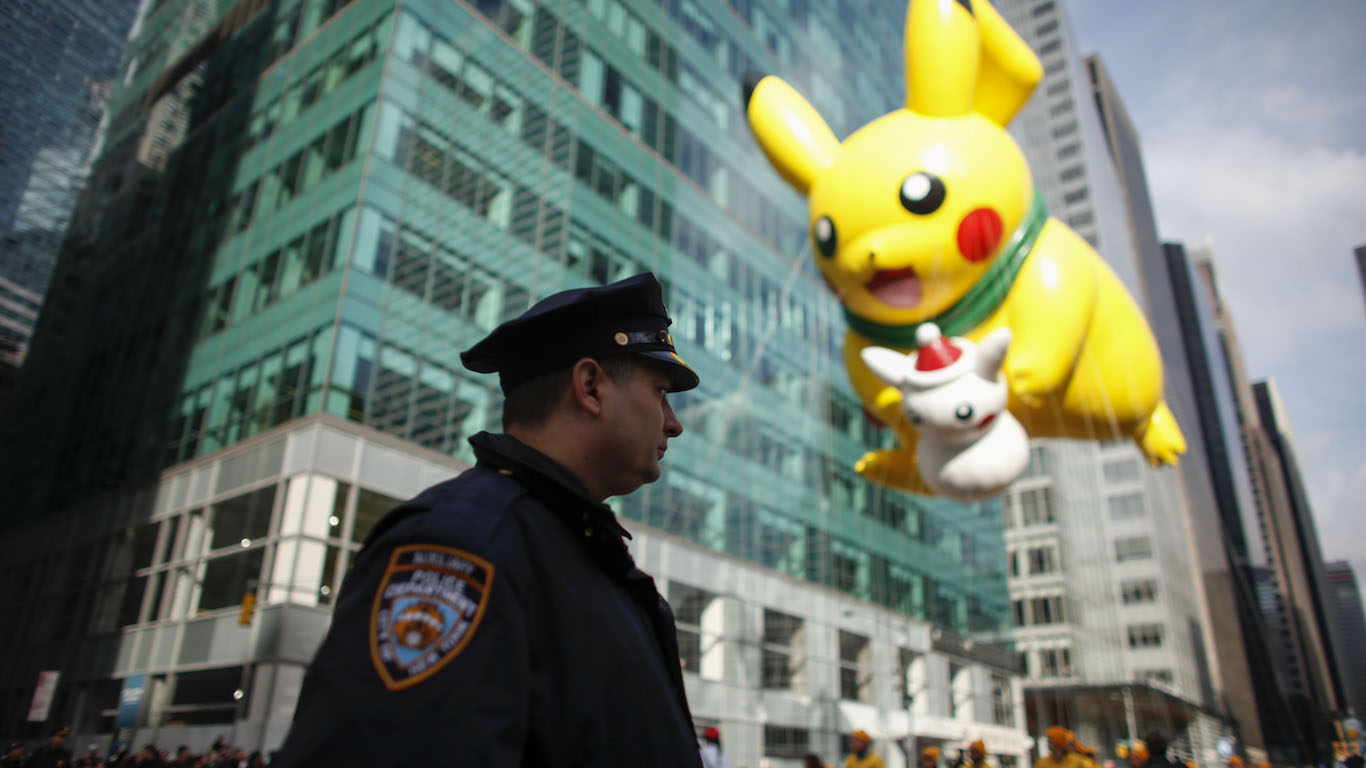
4. Public gatherings became major security concern
While other countries, such as Israel or Turkey, have long struggled with providing security at public gatherings, U.S. sporting events, concerts, parades, or other places and events where people convene were deemed relatively secure. After the 9/11 attacks there was a higher level of awareness in the United States about the potential to inflict violence at a larger scale. The Homeland Security Act of 2002 has provided measures for heightened security at such large public gatherings. Other acts of domestic terrorism since 9/11 further enhanced these measures. Today, there is a noticeable, and seemingly permanent, heightened security presence at public gatherings, where those attending are checked for weapons before entering the event area.
Whether it is a marathon race or a stadium rock concert, community policing has visibly changed since 2001. Not since World War II has local police been tasked with duties beyond basic community service and crime control. Today, with the help of federal agencies, local law enforcement departments collaborate more closely with the federal government. Nowhere is this more apparent than the police presence at mass gatherings that could be prime terrorism targets.
[in-text-ad-2]
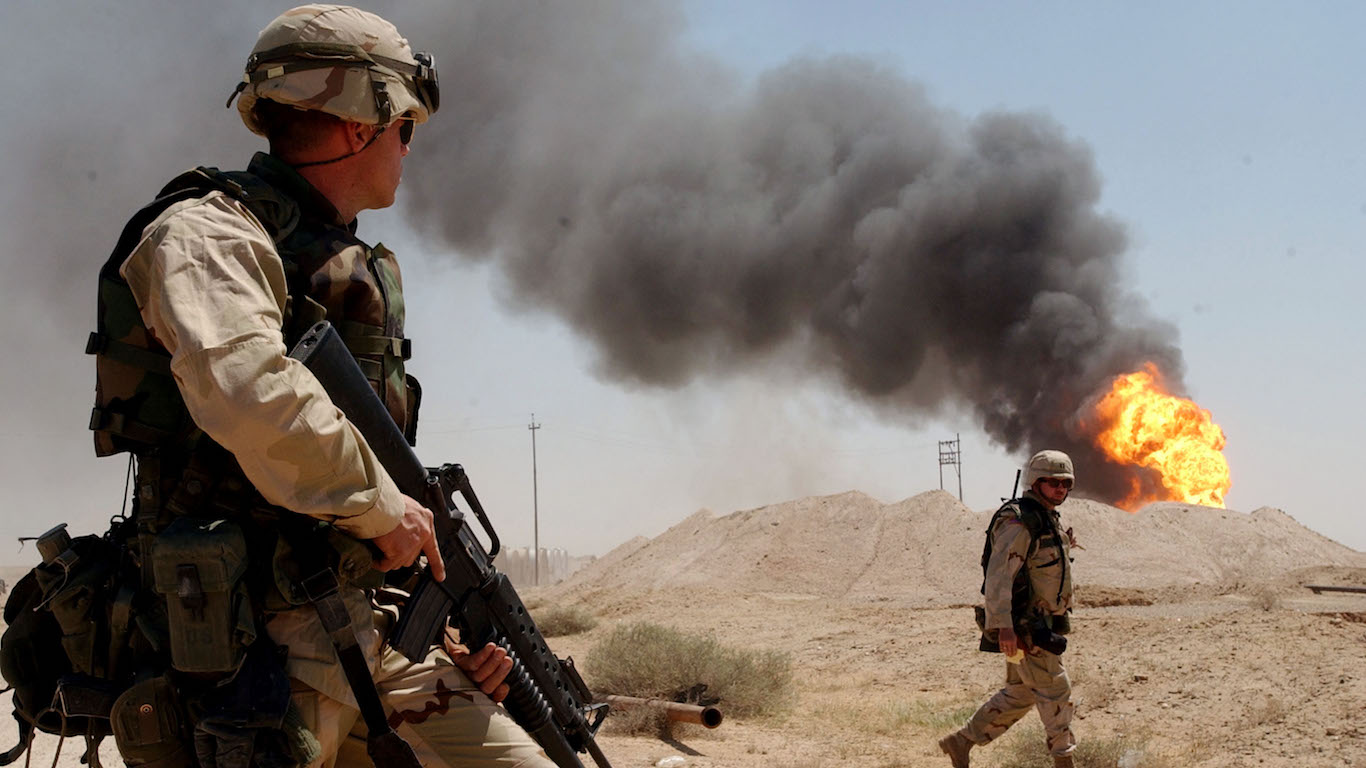
5. America entered a constant state of war
An unclassified White House document revealed that the United States is involved in conflicts in seven countries. Lawmakers have required this information in order to pass the 2018 defense budget. Indeed, since the Sept. 11, 2001, terrorist attacks, the U.S. military has been engaging in active combat somewhere in the world amid the seemingly endless global War on Terror.
Wars in Afghanistan and Iraq, the primary countries where the United States has been in armed conflict, have cost U.S. taxpayers $1.6 trillion since 9/11, according to a Congressional Research Service estimate in 2014. Though military operations in these two countries have been scaled down considerably, the United States still has a military presence in both nations. The other countries in which the United States has recently engaged in military action include Syria, Somalia, Libya, Niger, and Yemen.
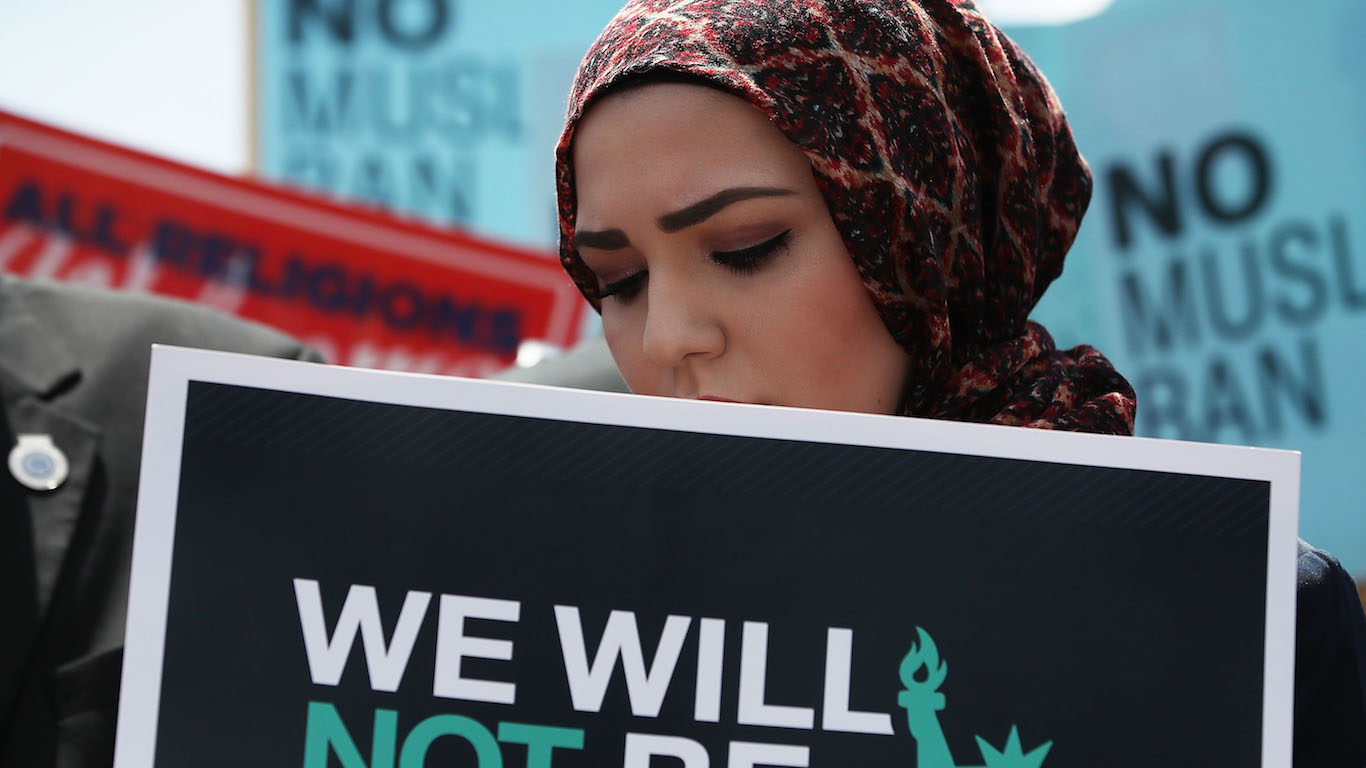
6. U.S. immigration policy changed
The terrorist attacks of Sept. 11, 2001, have had a profound impact on U.S. immigration policy. The federal government implemented a series of critical and controversial policy measures in an effort to tackle threats from would-be terrorists on American soil. The Homeland Security Act of 2002 replaced the Immigration and Naturalization Service, an agency of the Department of Justice, with the U.S. Citizenship and Naturalization Service, which became part of the newly created Department of Homeland Security. The DHS is a cabinet-level department responsible for domestic security and the vetting of temporary or immigrants to the United States. The act also founded the U.S. Immigration and Customs Enforcement, the immigration law enforcement agency that has been thrust into controversy since President Donald Trump took office.
Immigration vetting and enforcement increased dramatically after 9/11. These efforts have led to very few deportations on the basis of national security or terrorism.
[in-text-ad]
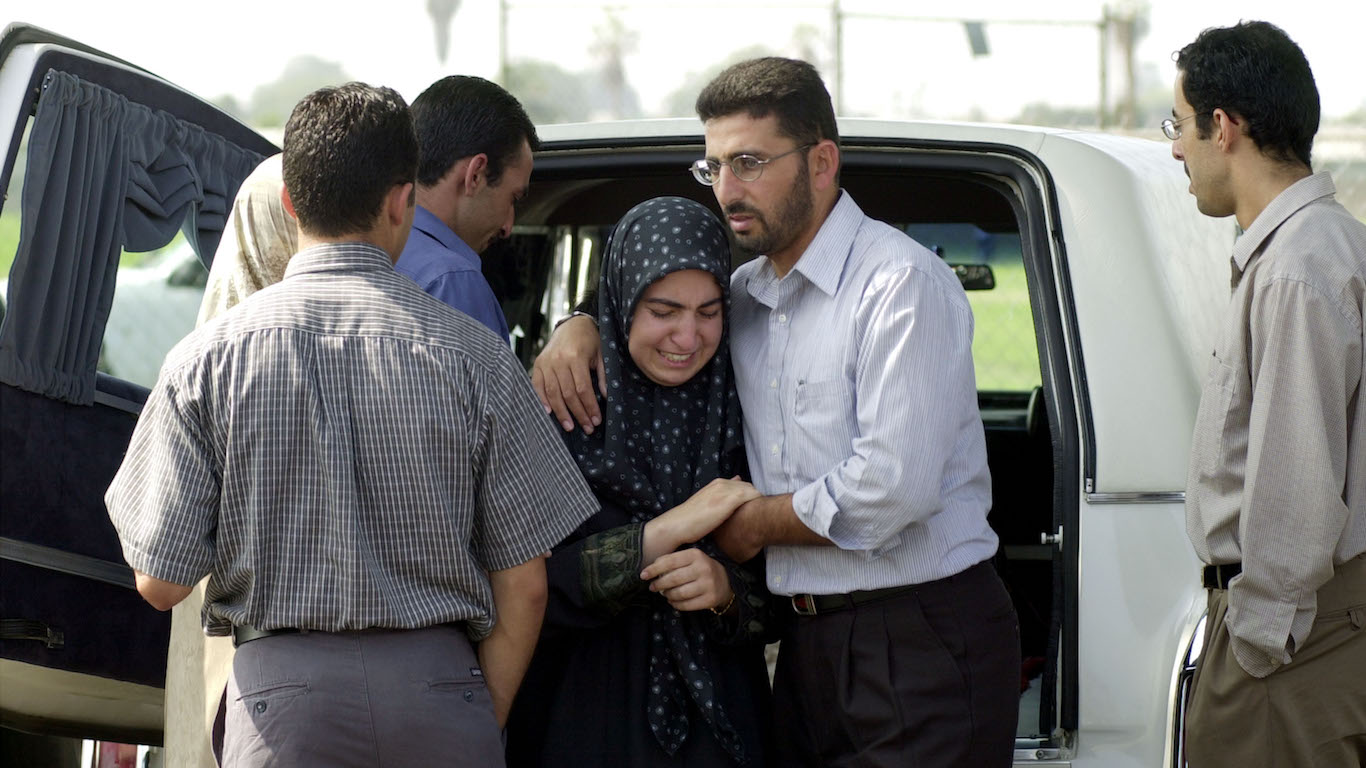
7. Hate crimes rose against Muslims
In the aftermath of the 9/11 attacks, inspired by radical Islamic thinking that regards the West as an enemy, life became harder for America’s 3.45 million Muslims. Assaults on Muslims reported to the FBI grew to 93 in 2001 from just 12 in the previous year. In 2016, the number of FBI-reported assaults targeting Muslims was higher than in 2001 and has not declined to pre-9/11 levels in any year since. Hatred was often directed at Sikhs, who were mistaken for Muslim because Sikh men tend to wear turbans and grow beards.
Along with Arabs and Latinos, Muslims are often singled out by TSA agents, and they are more likely to be targeted for some form of surveillance activity by law enforcement, according to the American Civil Liberties Union. Meanwhile, public perception of Islam since 9/11 has “turned sharply negative,” according to a 2015 survey by the nonprofit Public Religion Research Institute.
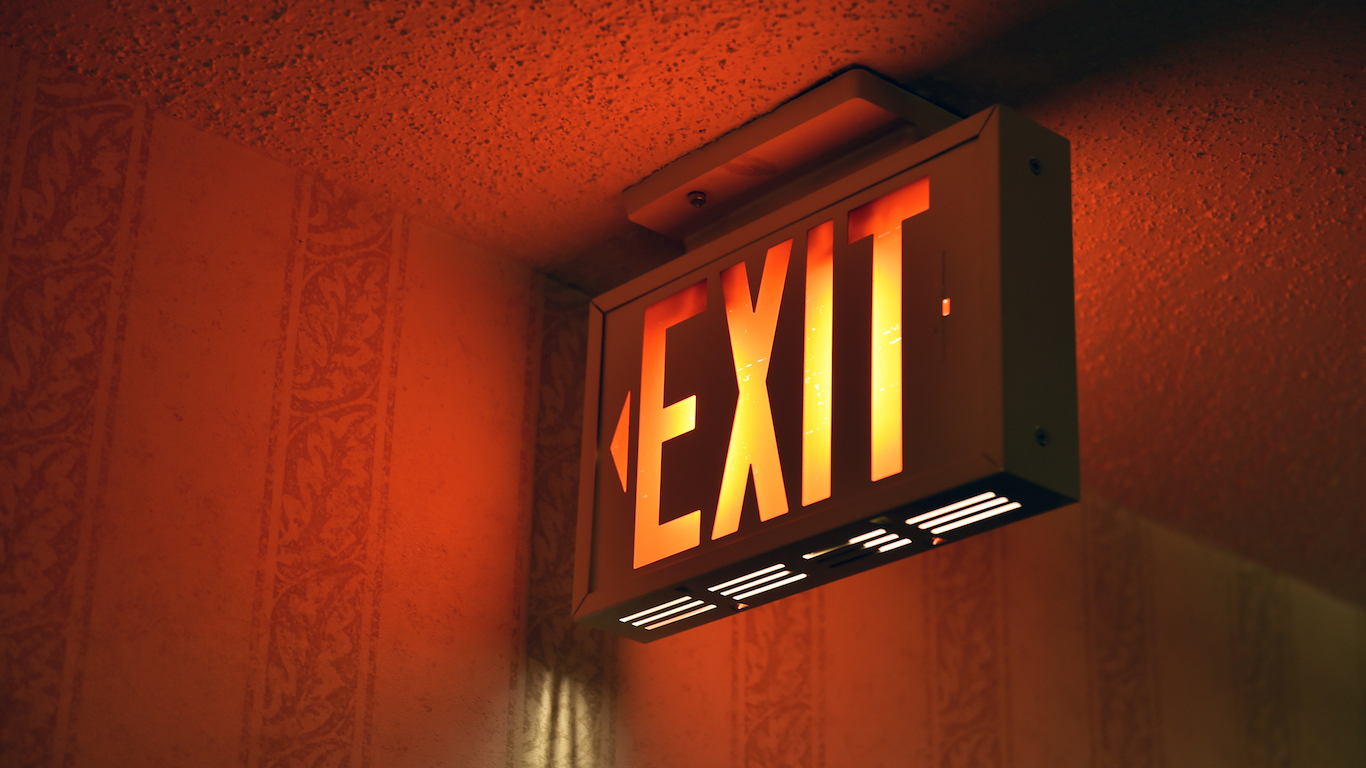
8. Building codes and security changed
In the wake of the 9/11 attacks, the International Code Council, which is responsible for creating construction industry building and safety codes used across the United States, established a commission to review what could be done to improve the way buildings are constructed. Using the experiences of first responders who went to the World Trade Center towers during the attacks, the ICC implemented changes to building codes. The results included requiring an additional staircase for buildings more than 420 feet tall, better fireproofing to help contain flames, improved radio systems to help emergency personnel communicate with each other inside buildings, and encasing elevator shafts and emergency exit staircases with stronger impact-resisting walls.
In addition to changing the way buildings are constructed, the 9/11 attacks prompted officials to implement stricter security measures in many public and government buildings, such as requiring visitors to sign in and wear identifying badges and having deliveries be dropped off at the front desk. Many private-sector companies have followed suit, making it more difficult for non-employees to get past ground-floor security unchecked.
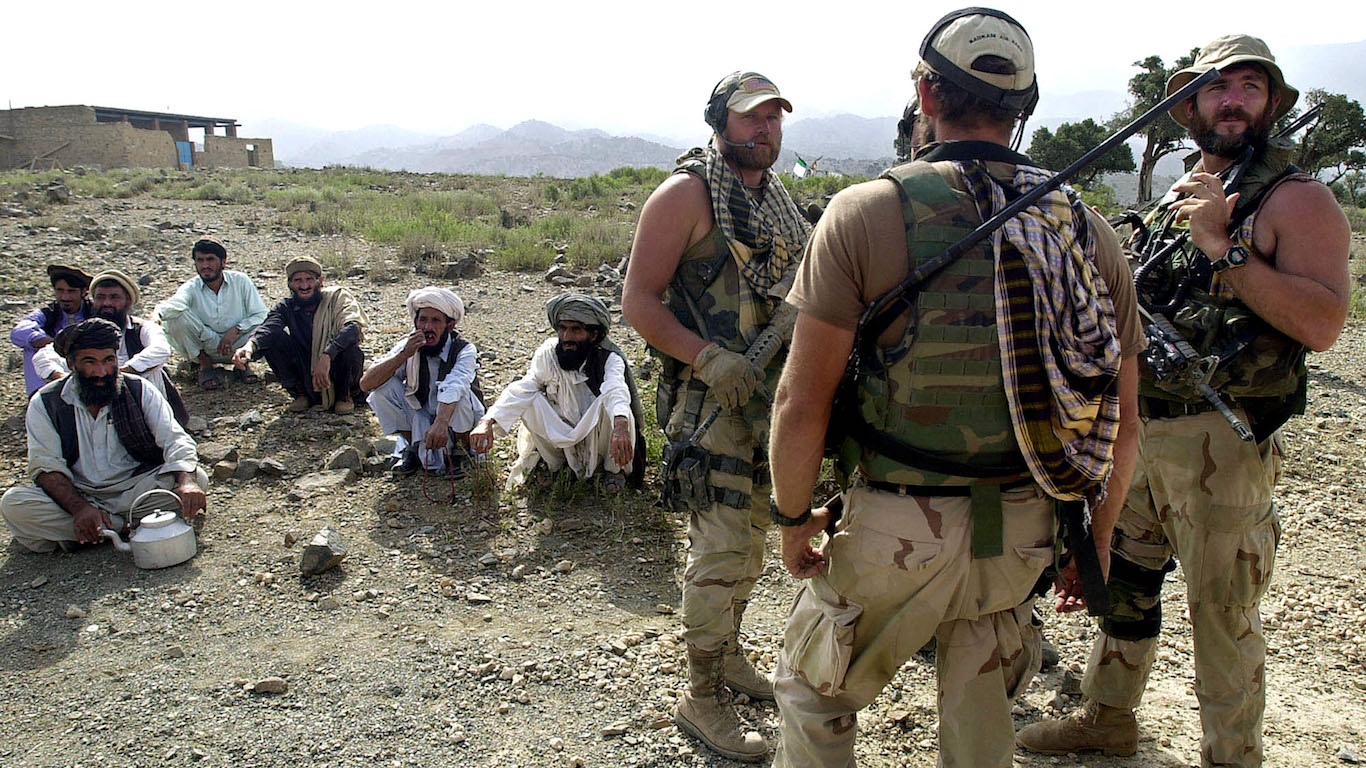
9. U.S. military strategy shifted
One of the big lessons from 9/11 and the ensuing War on Terror was that modern warfare has changed — significantly. The last time the United States was attacked within its boundaries by a foreign entity was at Pearl Harbor in 1941 that brought the nation into World War II. However, that conflict was a conventional war involving battle lines, heavy artillery, battleships, fighter jets, tanks, and millions of boots on the ground. Today, the U.S. military has adopted new, nimbler strategies to confront a war without borders or front lines. Military strategists call these new conflicts asymmetrical wars.
One major change has been the wholesale adoption of counterinsurgency warfare, which focuses on winning the hearts and minds of noncombatants rather than racking up enemy body counts — a measure of progress in battle used in the Vietnam War. The United States also relies more on Special Operations Forces, small groups of highly trained soldiers conducting surgical strikes against high-value targets, such as the Navy Seal mission that killed 9/11 mastermind Osama bin Laden. The 9/11 attacks and War on Terror also inspired greater use and development of robotic assets. Since 9/11, unmanned aerial vehicles (drones) have been used more extensively, and controversially, and are now an integral part of America’s fight against terror.
[in-text-ad-2]
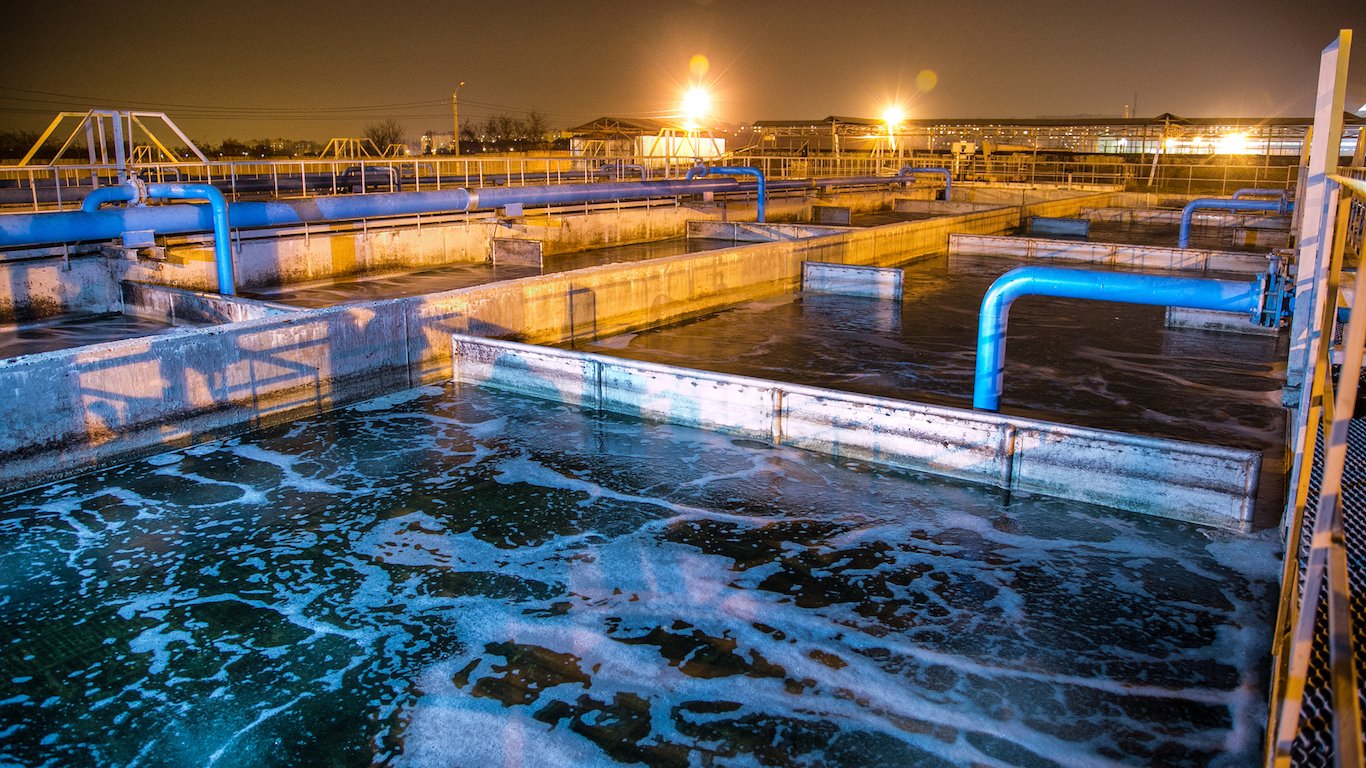
10. Infrastructure went under greater scrutiny
The 9/11 terrorist attacks raised many questions about the vulnerabilities of the nation’s infrastructure, from power plants to water treatment facilities to banks and telecommunications installations. The Department of Homeland Security has a division dedicated to assessing critical security of vital, but often privately controlled, infrastructure. Private companies controlling vital infrastructure can be hesitant to invest in “what if” security measures without a little cajoling from the government.
With so many essential parts of the economy connected to the internet, cybersecurity also has become high priority. In the last half of 2017 alone, almost 40% of the country’s industrial control systems and vital infrastructure were hit with some kind of cyberattack, according to data collected by cybersecurity company BluVector. The World Economic Forum’s Global Risks Report 2018 says cyberattacks and cyber warfare will be the leading disruptive events in the next five years, after only natural disasters and extreme weather events.
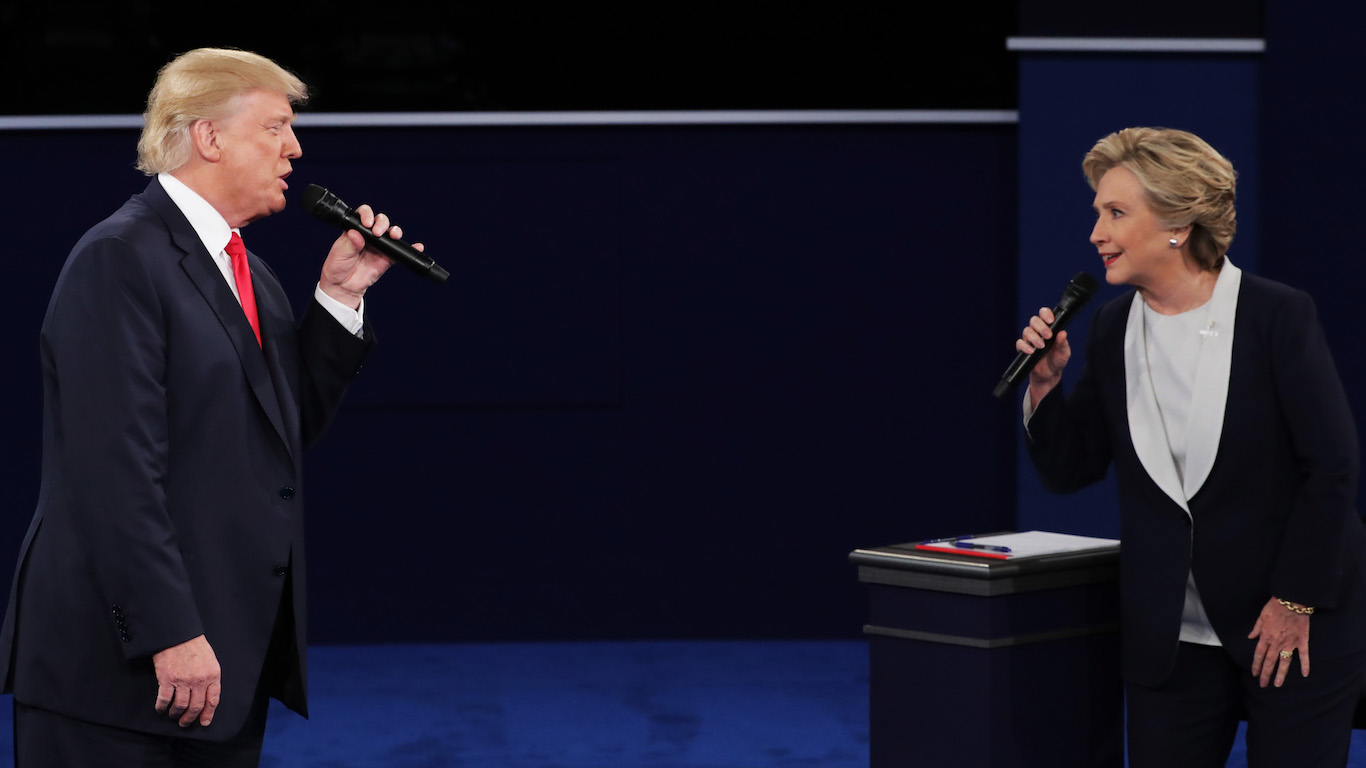
11. American politics became more polarized
Immediately after Sept. 11, 2001, it seemed that Americans had set aside their differences and lined up behind the flag, galvanized by a common goal. Lawmakers on both sides of the aisle sought retribution for the attacks, quickly passing the USA PATRIOT Act, a sweeping expansion of surveillance power, less than two months after 9/11. Republican and Democrat lawmakers alike were banging war drums to send troops to fight al-Qaeda and Taliban insurgents in Afghanistan.
But that unity was short lived and traditional rivalries, political gridlock, and partisanship re-emerged. Disagreements on issues such as climate change and school vouchers had existed before, of course, and the differences sharpened after 9/11. Social media has certainly had a compounding effect on public debate, but divisive issues around immigration policy, perception of Muslims and Islam, and America’s relationship with the rest of the world seemed to have been influenced by the 2001 attacks.
[in-text-ad]
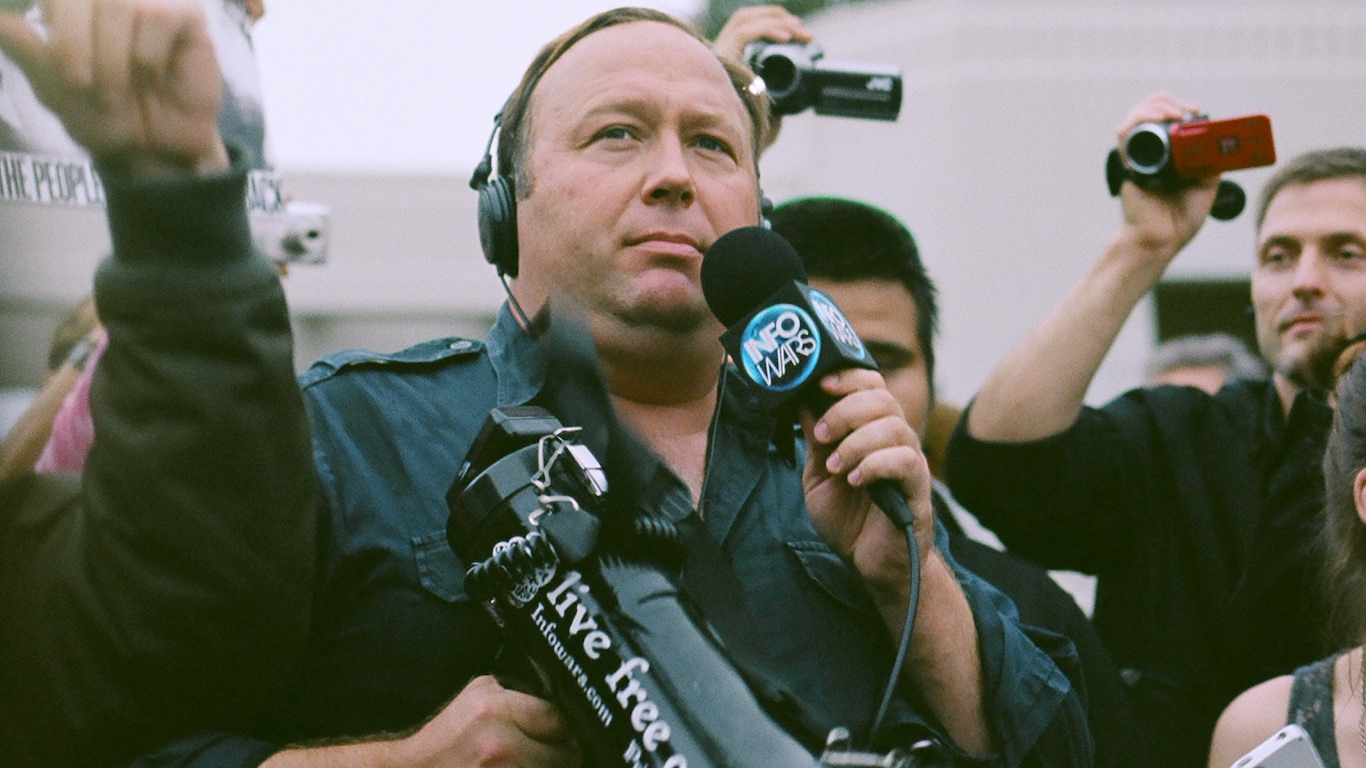
12. Conspiracy theorists emerged
The 17 years that have passed since the biggest terrorist attack on U.S. soil have not done much to erode the convictions of 9/11 conspiracy theorists. These theories emerged almost immediately after the attacks, with armchair sleuths, known collectively as 9/11 Truthers, positing wild theories. According to one conspiracy theory, the government staged the attacks to drum up support for a war in Iraq. Another claims that Flight 93, the plane that crashed in Pennsylvania after passengers revolted against the hijackers, was actually shot down. These 9/11 Truthers never went away.
As recently as June, rugby star Lima Sopoaga questioned how the Twin Towers could have collapsed from the fires raging inside when London’s Grenfell Tower remained standing after a fire burned for 60 hours, killing 73 people in June 2017. Earlier this year, the BBC profiled 9/11 Truthers who still think the attacks were an inside job. It seems like the world is stuck with these and other widely debunked conspiracy theories and their promoters.
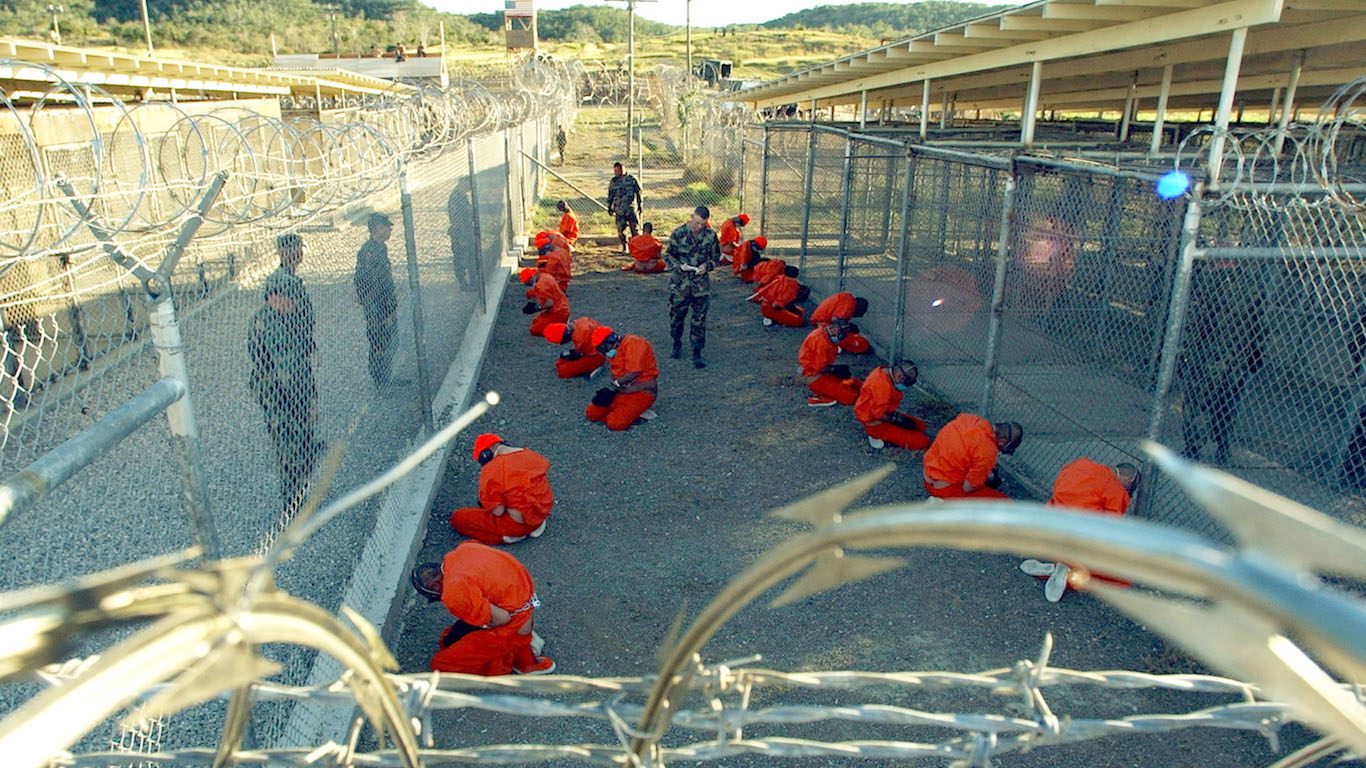
13. Treatment of prisoners sparked debate
The reaction to the 9/11 attacks conjured up what many Americans might have considered unthinkable: the U.S. government enacting an official policy of torturing terrorist suspects in order to extract intelligence from them. In 2013, the Constitution Project, a legal research and advocacy group, released a 600-page report concluding that it was “indisputable that the U.S. engaged in the practice of torture” of terror suspects in the wake of the 9/11 attacks, and that the nation’s highest officials were responsible for authorizing the practice. Torture, as identified by the group, included waterboarding, slamming suspects against walls, placing them in an uncomfortable position for hours, stripping them naked, and keeping them awake for prolonged periods.
Officially, the government banned these so called “enhanced interrogation techniques” a decade ago. However, it is possible these controversial practices continue. In December, a U.N. human rights investigator claimed that despite a decade-old ban on these interrogation tactics, torture is still being practiced on enemy combatants still held at the Guantanamo Bay detention facility in Cuba. The Department of Defense denies the allegation.
14. Money tracking standards changed
The rules involving moving money around changed significantly after 9/11, as investigators learned that at least $300,000 used to fund the attacks passed unchecked through traditional banking channels. Further, the hijackers had used a numbered bank account to obtain the funds through regular wire transfers, deposits, and withdrawals. The USA PATRIOT Act, passed in October 2001, added provisions to the 1970 Bank Secrecy Act that mandated banks maintain customer-identification records, check identities against a list of known terror suspects, and report to authorities any transfers above $10,000. U.S. banks were also prohibited from doing business with foreign shell banks, which are adept at concealing the identities of their customers.
The United States also cracked down on hawala, an ancient system of complex swaps involving gold or other valuables traded among operators in different countries. This quick and cheap way to transfer money is used by millions of poor guest workers, especially in Asia and Africa, to remit money to their families. But U.S. Treasury officials believe hawala’s lack of conventional record keeping makes it an ideal conduit for terrorism financing.
[in-text-ad-2]
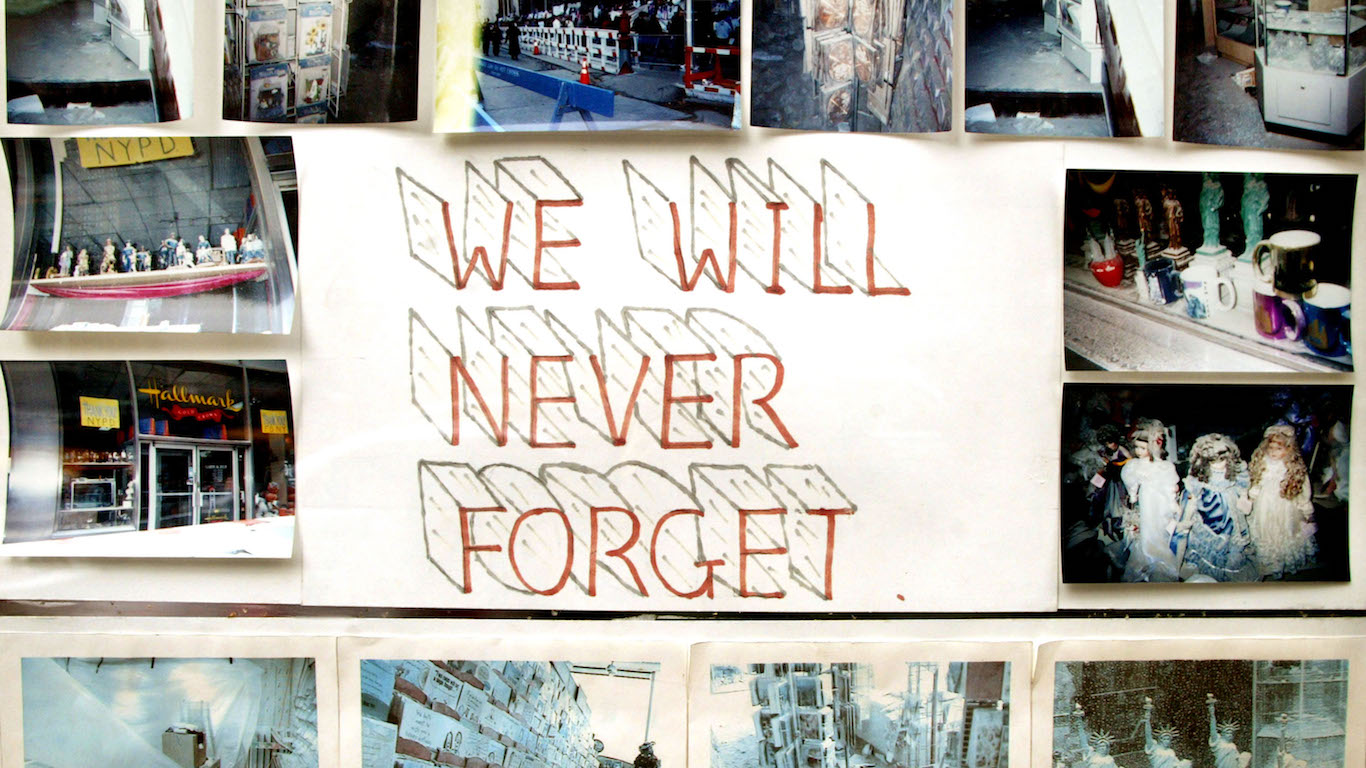
15. Americans were taught to “Never Forget”
The attacks of Sept. 11, 2001, are far enough in the past that many young Americans lack any visceral connection to the events of that day. The attacks are now part of the nation’s history, and the country is starting to figure out how to keep the memory and lessons of the event alive to future generations of Americans.
Teachers old enough to remember where they were the moment they learned of the attacks have only recently started to grapple with how to teach the complex moment in U.S. history. By some accounts, primary-school teachers have said that teaching anything after the end of the Cold War (1991) is a challenge. In 2010, one New Jersey school district got a head start and formed a committee to work out one of the country’s first curriculums on how to teach grade-school students about global terrorism. New York City also has taken a lead in teaching about 9/11 to students.
Essential Tips for Investing: Sponsored
A financial advisor can help you understand the advantages and disadvantages of investment properties. Finding a qualified financial advisor doesn’t have to be hard. SmartAsset’s free tool matches you with up to three financial advisors who serve your area, and you can interview your advisor matches at no cost to decide which one is right for you. If you’re ready to find an advisor who can help you achieve your financial goals, get started now.
Investing in real estate can diversify your portfolio. But expanding your horizons may add additional costs. If you’re an investor looking to minimize expenses, consider checking out online brokerages. They often offer low investment fees, helping you maximize your profit.
Thank you for reading! Have some feedback for us?
Contact the 24/7 Wall St. editorial team.
 24/7 Wall St.
24/7 Wall St.
